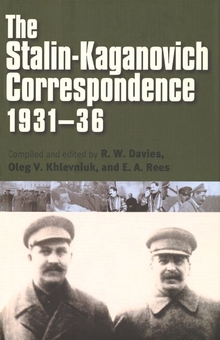These Sad But Glorious Days
WARNING
You are viewing an older version of the Yalebooks website. Please visit out new website with more updated information and a better user experience: https://www.yalebooks.com
Dispatches From Europe, 1846-1850
Margaret Fuller; Edited by Larry J. Reynolds and Susan Belasco Smith
Out of Print
Margaret Fuller—journalist, critic, radical feminist, and political activist—traveled in Europe between 1846 and 1850 as a foreign correspondent for the New York Tribune. Her letters from England, France, and Italy, which began as engaging travel sketches, soon became moving accounts of the most widespread revolutionary upheaval within modern history. These dispatches are now reproduced in their entirety for the first time
Fuller met important political figures wherever she traveled, including those who became leaders in the revolutions, and she actively allied herself with the republican cause. Her letters describe how from her apartment in Rome she saw the November 1848 attack on the Quirinal Palace, which precipitated the Pope’s flight from the city and the establishment of the Roman Republic headed by her friend Giuseppe Mazzini; how she and the Romans (who included her lover Giovanni Ossoli, a captain in the Civic Guard) suffered through the June 1849 siege and bombardment of Rome by the French army sent to restore the Pope; and how as director of a hospital on Tiber Island, she nursed the wounded who fell in the defense of the city.
The dispatches, edited and annotated by Larry J. Reynolds and Susan Belasco Smith, are introduced by an essay explaining the historical and professional context in which the letters were written.
"Fuller's letters are extraordinarily good. They will be of interest to scholars of American literature and history, women's studies, and European literature and history."—Joel Myerson, University of South Carolina
"Scrupulously edited. . . . This book should be welcomed by literary scholars, historians, feminists, and other students of the American nineteenth century: it is high time these remarkable dispatches were brought back to light."—William W. Stowe, American Literature
"A carefully edited collection of all of Margaret Fuller's dispatches from Europe to Horace Greeley's New York Daily Tribune."—Choice
"Recommended for the power of Fuller's own writing, for its capacity to convey the emotional idealism of liberal America as well as liberal Italy, not to mention the amusement she as well as her readers derive from observing the sight-seer 'abroad.'"—Agatha Ramm, International History Review
"Her dispatches, assembled here in a single volume for the first time, confirm Margaret Fuller's stature as an extraordinary woman, intellectually alert and profoundly sensitive to the changing scenario around her. . . . In their meticulous reconstruction of the text the editors strike a delicate balance between preserving Fuller's intentions while at the same time responding to the needs of contemporary readers."—Peter Vassallo, Journal of Mediterranean Studies
"This welcome edition has made more accessible the works of an important figure in American literary history."—Sylvia Neely, Journal of the Early Republic
"This collection of thirty-seven dispatches written for Horace Greeley's New-York Tribune presents an opportunity to view [Fuller] as a developing personality, burning off heaps of silliness and taking on something like character—even splendor—as she finds herself caught up in the brief, calamitous life of the Roman Republic during the European uprisings of the late 1840s."—Thomas Mallon, New Criterion
"Meticulously edited and well-annotated edition of the nearly two score dispatches Fuller sent to the New York Tribune during her service as its foreign correspondent in England, France, and Italy."—Nineteenth-Century Literature
"[Fuller's] fervour, sincerity and responsiveness to the great events which overwhelmed her must fill any sensitive twentieth-century reader with outright envy."—Jonathan Keates, The Observer
Publication Date: December 25, 1991








